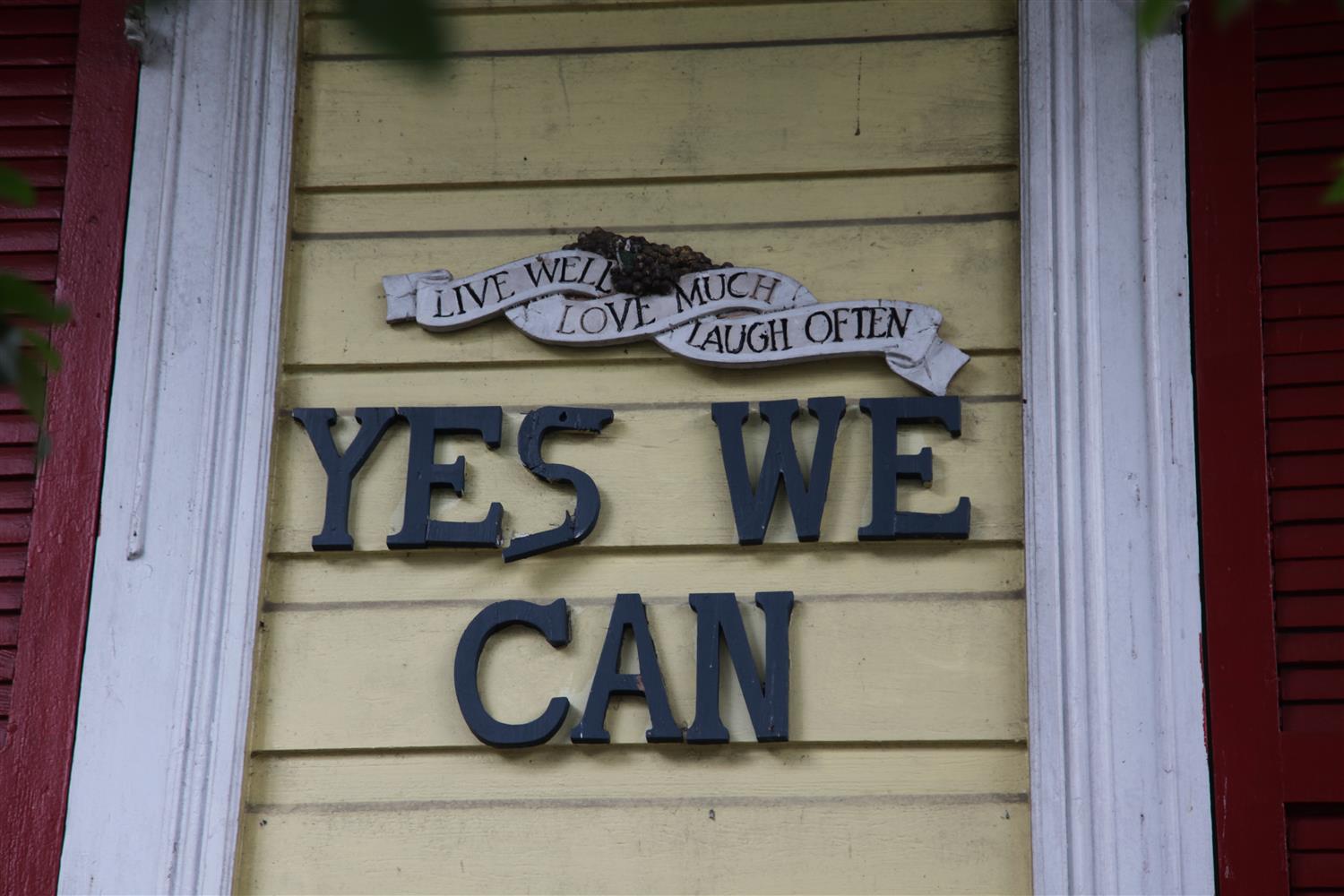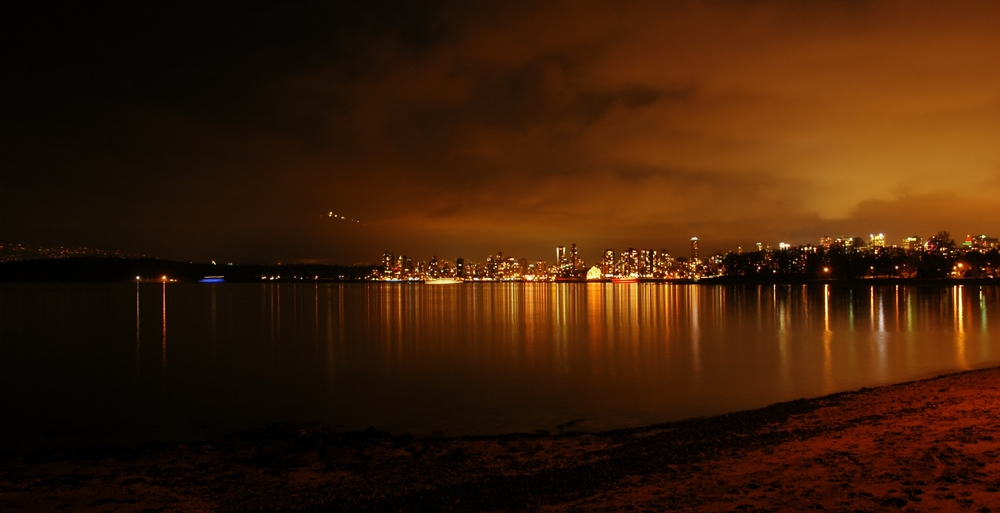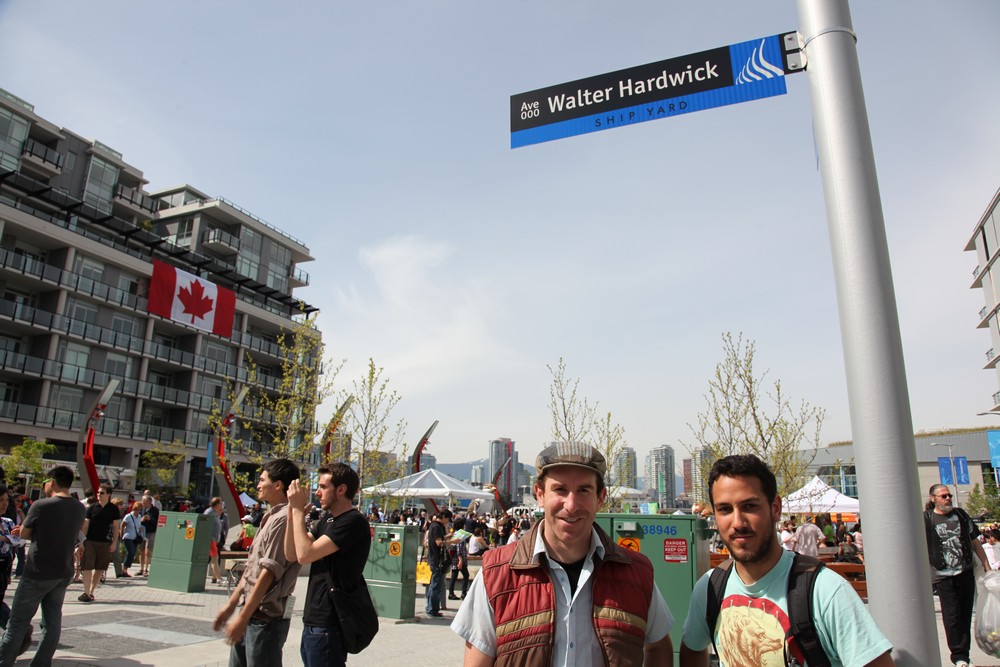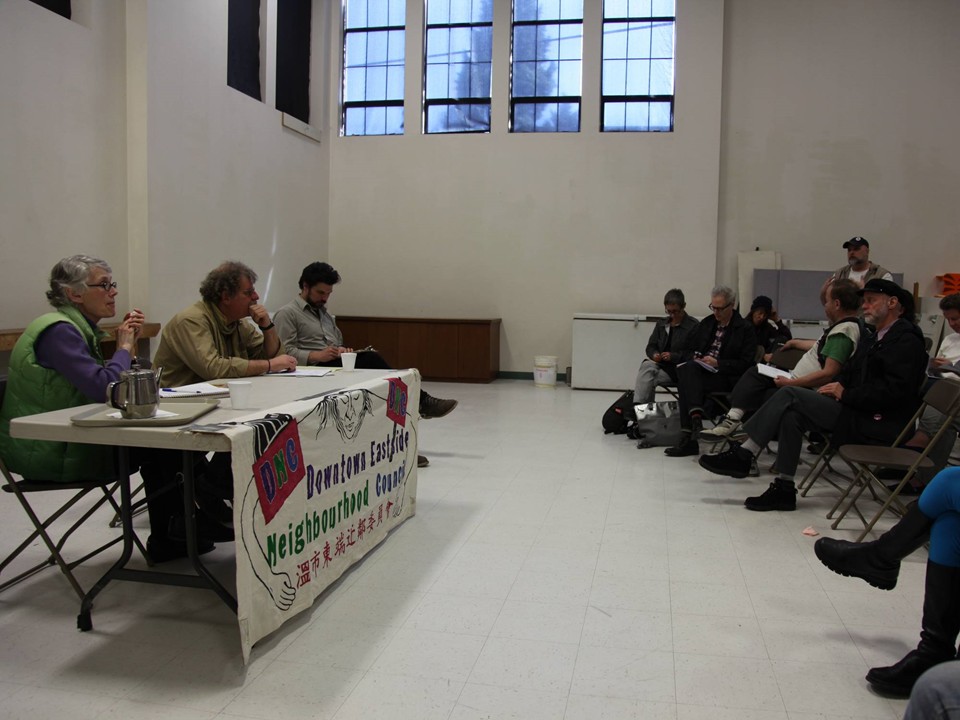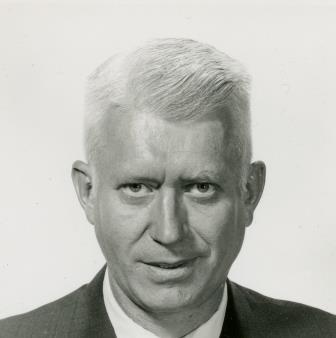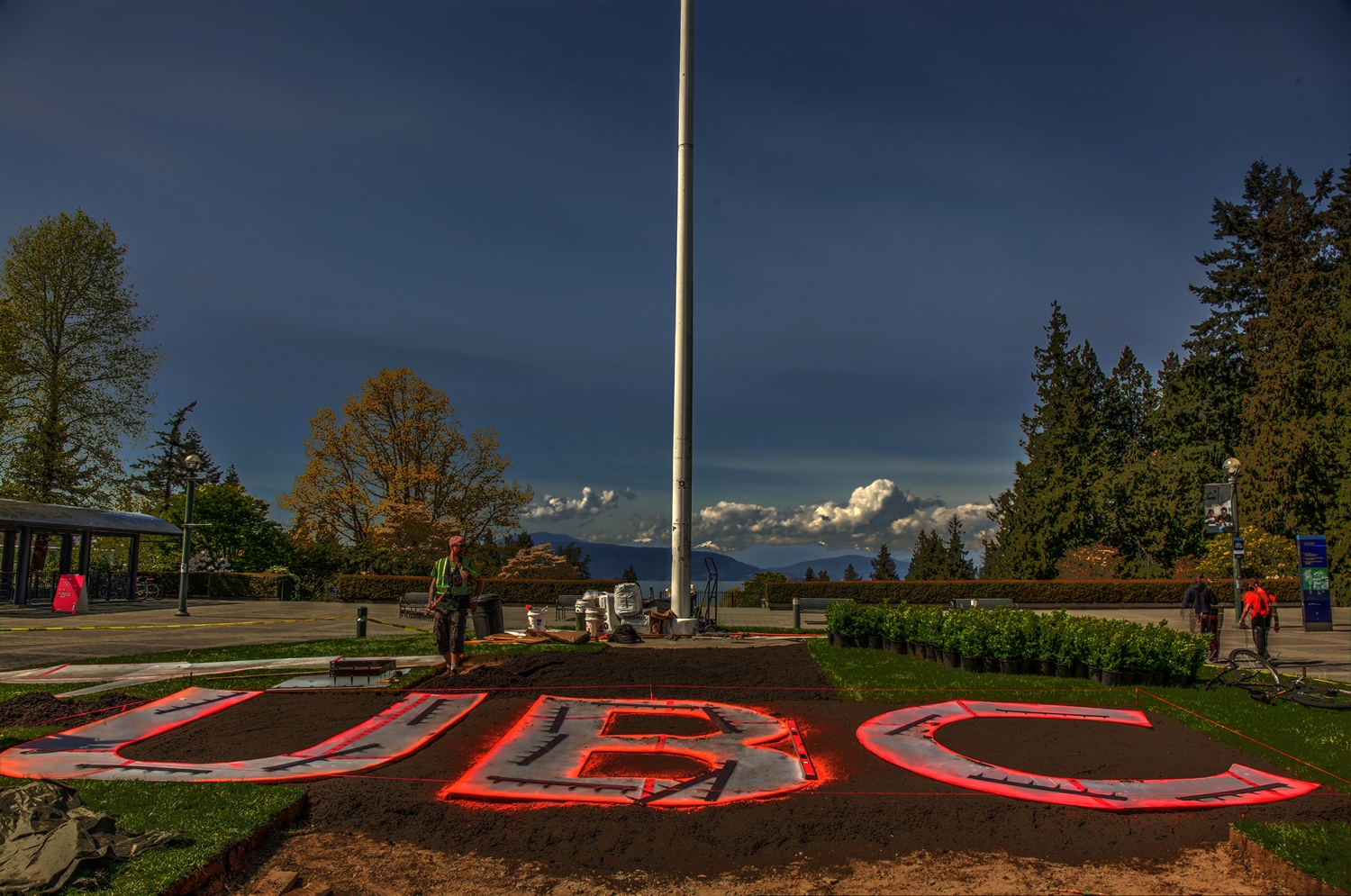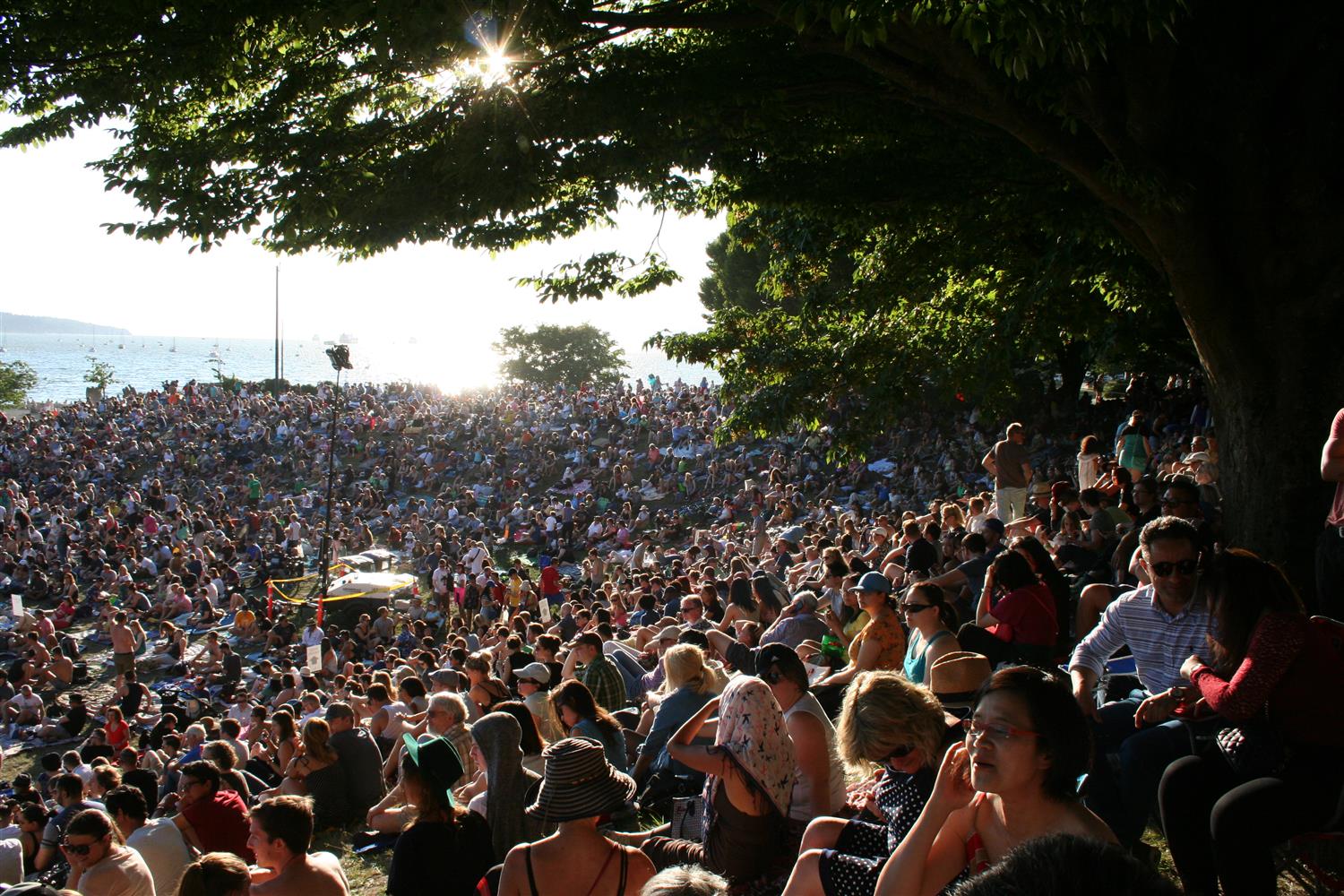


CopyLeft 2019 Elvin K. Wyly
Except where otherwise noted, this site is
licensed under a Creative Commons Attribution 2.5 License
This section provides information on a variety of scholarships, fellowships, and awards for students specializing in urban studies. Awards are administered by the UBC Urban Studies Coordinating Committee, and conferred after annual reviews of academic transcripts; it is not possible for students to apply directly for these scholarships. Urban Studies at UBC does, however, have a small budget to support various initiatives by graduate and undergraduate students. If you'd like further information on these items, stop by Office Hours to speak with the Chair of the Urban Studies Coordinating Committee.
UBC Urban Studies Scholarships
The Walter G. Hardwick Scholarship in Urban Studies
Three scholarships have been endowed by his family in honour of Dr. Walter G. Hardwick, one of North America’s leading urban geographers. One scholarship of $1,000 is provided for a doctoral student in Urban Studies and two scholarships of $550 each are provided for outstanding undergraduate students in Urban Studies. The awards are made on the recommendation of the Department of Geography and, in the case of the graduate scholarship, in consultation with the Faculty of Graduate Studies.
Walter Hardwick was born in Vancouver on May 3, 1932, and began studies in Geography at the University of British Columbia in 1950 [1]. After earning an MA at the University of Wisconsin and a Ph.D. from the University of Minnesota, he joined the faculty in Geography at UBC in 1960. He founded the Urban Studies Program in 1971, and led the program's interdisciplinary contributions in the Faculty of Arts and across other parts of the University for more than a quarter century. Beyond his many contributions to urban geography and urban studies in the academy, Professor Hardwick played a key role in shaping the city itself. Walter was elected to Vancouver City Council as a co-founder of The Electors' Action Movement (TEAM); in his five years on Council, Walter served as an advisor as the City redeveloped the south side of False Creek. Walter served as Deputy Minister of Education from 1976 to 1980 (helping to launch the Open Learning Institute and the Knowledge Network) and later chaired the Canadian Capital Commission. Professor Hardwick was awarded the Order of British Columbia in 1997, the year of his retirement from UBC.
Walter Hardwick passed away on June 9, 2005. A Memorial celebration of his life and contributions was held on June 28 at the Chan Centre for the Performing Arts. Tributes were offered by Art Phillips (former Mayor of Vancouver and Member of Parliament), Bing Thom (Architect), Mike Harcourt (former Alderman, Mayor of Vancouver, and BC Premier), Dr. David F. Hardwick (Walter's brother), Colleen Hardwick Nystedt (Walter's daughter), Dr. Graeme Wynn (Head of Geography), Dr. J. Lewis Robinson (founding Head of UBC Geography), and several other students and other urbanists shaped by Walter's vision, leadership, and commitments. Professor David Ley, Walter's longtime colleague and friend at UBC, praised Hardwick's many contributions to urban studies and to urban policy debates: "He was a public intellectual in the sense that he engaged publicly in issues of the time. He wanted to change things -- always in a democratic-reform-oriented, political way. And I think he had a great curiosity and desire to learn from the varied people he came into contact with." [3]
Many other details of Walter's professional accomplishments are summarized in the UBC Library Archives. His daughter also maintains a Facebook page that includes interviews as well as present-day press coverage of the continued legacies of Walter's work reshaping the spatial structure of Vancouver.
Walter G. Hardwick (1932-2005)
Previous Hardwick Scholarship Recipients
Luke R. Barnesmoore
Xuekai River Sun
Hana Golightly
Nina Ebner
Julian Villafuerte Diaz
Christa Yeung
Qinran Yang
Craig E. Jones
Emily Rosenman
Ted Rutland
Caroline Sage Ponder
Nicholas Lynch
Kailey Metcalf
N. Olivier Wilson
Haley Mousseau
Cameron Balfour
Kathy Sherrell
Kenneth Leung
Margaret Larcombe
Peter John MacRae
Paul Farish
Patric Oabel
Previous Wyly Award Recipients
Daniel Gámez
Rachel Brydolf-Horwitz
Emily Hawes
Joe Daniels
Craig E. Jones
Sam Walker
Liam McGuire
Daniel Cockburn
Polina Skortsova
Guanming Low
Ted William Rutland
Jason Adrian Carroll
Luke Sholefield
Elizabeth Lee
Christopher Ian McBeath
Mike Ly
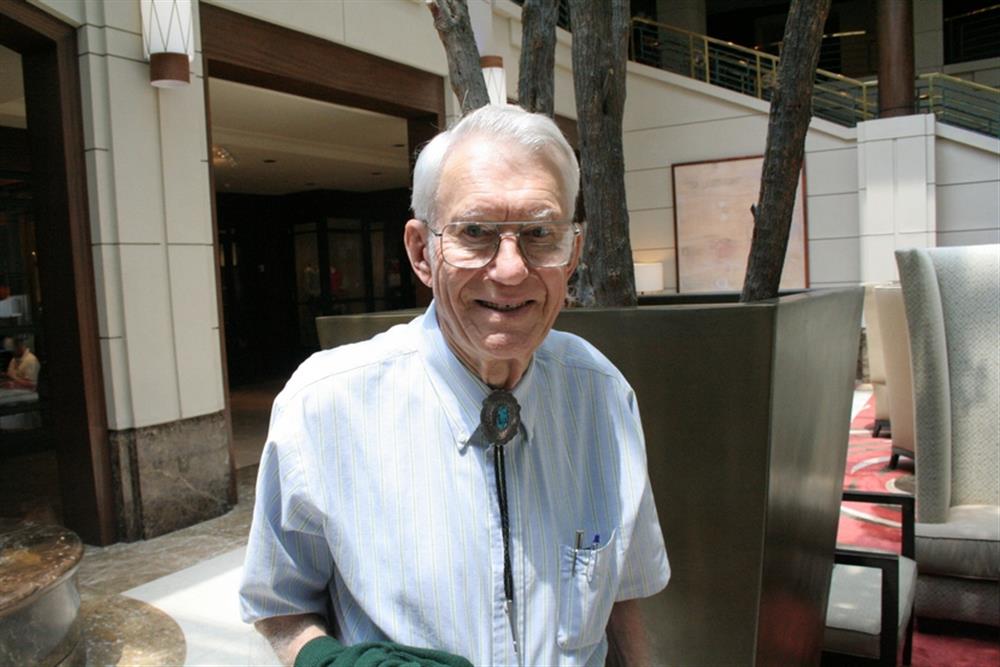
The Robert S. Wyly Scholarship and Bursary in Urban Studies
A $1,000 scholarship, and two $1,000 bursaries, are offered in honour of Robert S. Wyly, a distinguished urbanist whose career helped to set the standard for the creation of North America's suburban landscapes. The bursaries are available to undergraduate students entering the second, third, or fourth year of the Urban Studies Program. Bursary candidates are chosen by Awards Services, while Scholarship awards are made on the recommendation of the Urban Studies Coordinating Committee in consultation with the Faculty of Graduate Studies.
Robert S. Wyly was born in 1920 in Lockney, Texas, the only son of George Wyly and Effie Carr Wyly. In 1924 the family moved to Parmer County, Texas, and for the first three years of his elementary school education Robert traveled from home to a one-room schoolhouse in Black, Texas, on a horse. The horse was slow and gentle, and thus good, safe transportation for a little boy, having once been bitten by a rattlesnake (and thus earning the name 'Rattler.') After serving in the U.S. Army during World War II and completing a B.S. in Geology and Petroleum Engineering at Texas Tech University, he accepted a position in 1947 with the National Bureau of Standards in Washington, D.C. Wyly's work at the Bureau in the 1950s and 1960s took place in the context of rapid suburbanization and residential construction in thousands of independent municipalities across the United States and Canada. Wyly's research was instrumental in the development of plumbing, construction, and fire safety standards to integrate building codes, zoning ordinances, and subdivision regulations. In 1976, Wyly retired from the Bureau (now known as the National Institute of Standards and Technology), but he continued to advise governmental and private organizations on building codes through the 1980s. Key elements of his research [4,5] continue to be cited in codes and standards as well as ongoing basic research in the United States [6,7] and Canada [8]. Robert Wyly lived the last years of his life in Hickory, North Carolina, and passed away at age 97 in May, 2018.
References
[1] Michael J. Bovis (2005). "Walter Hardwick." Letter to UBC Geography faculty, staff, and students. June 10. Vancouver: Department of Geography, University of British Columbia.
[2] In Celebration of His Life and Contributions: Dr. Walter G. Hardwick, May 3, 1932 to June 9, 2005. (2005). Memorial Program, June 28. Vancouver: Chan Centre for the Performing Arts, University of British Columbia.
[3] Darah Hansen (2005). "Longtime UBC Professor Walter Hardwick dead at 73." The Vancouver Sun, June 15, B8.
[4] Robert S. Wyly, et al. (1978). Investigation of Standards, Performance Characteristics and Evaluation Criteria for Thermoplastic Piping in Residential Plumbing Systems. NBS Building Science Series 111. Washington, DC: National Bureau of Standards, U.S. Department of Commerce.
[5] Robert S. Wyly (1964). Investigation of the Hydraulics of Horizontal Drains in Plumbing Systems. Washington, DC: National Bureau of Standards, U.S. Department of Commerce.
[6] Joseph B. Zicherman (2000). Plastic Pipe and Fire Safety. Manuscript submitted to the NFPA Fire Journal, September 5. Available at http://www.ppfahome.org/pdf/safety.pdf Richmond, CA: Fire Cause Analysis.
[7] J.A. Swaffield, L.B. Jack, and D.P. Campbell (2004). "Control and Suppression of Air Pressure Transients in Building Drainage and Vent Systems. Building and Environment 39(7), 783-794.
[8] National Research Council of Canada (2005, 1981). Canadian Building Digest, Section CBD-220. Originally published 1981. Available at http://irc.nrc-cnrc.gc.ca/cbd/cbd200e.html. Ottawa: National Research Council of Canada.
"Cities have become increasingly central to the reproduction, mutation, and continual reconstitution of neoliberalism itself during the last two decades. Indeed, it might be argued that a marked urbanization of neoliberalism has been occurring during this period, as cities have become strategic targets for an increasingly broad range of neoliberal policy experiments, institutional innovations, and politico-ideological projects. Under these conditions, cities have become the incubators for many of the major political and ideological strategies through which the dominance of neoliberalism is being maintained." Neil Brenner & Nik Theodore (2002) "Cities and the Geographies of 'Actually Existing Neoliberalism'" in Spaces of Neoliberalism: Urban Restructuring in North America and Western Europe, Brenner, N. & Theodore, N. (Eds), Malden, MA: Blackwell, p. 28.
awards
scholarships, bursaries, and prizes
WHWBP
Walter Hardwick Would be Proud
Ted Rutland, Ph.D, 2012 (left), and Georg Rahi, B.A. 2012 (right), Vancouver Olympic Village Housing Protest, May, 2010.
"Suddenly the social and political future looks radically open."
Neil Smith, A Manifesto for the Poetry of the Future / Urban Subjects.
Photo: Jean Swanson, Neil Smith, and Ivan Drury, April 2011
The Neil Smith Prize in Critical Urban Studies
- Hana J. Golightly, "Transactive Memory and the Technological Mediation of Cities."
- Xuekai River Sun, "The Reduction of Humanity to Data Fragments: Quantified Selves in Planetary Urbanization."
- Ryo Kawanishi, "Explaining Gentrification in the Lower East Side from Policing Data."
- Alejandro Lazzari, "The Bodies of Brukman: The Performance of Space and the Expanded Reproduction of Spaces of Hope."
- Ian Marjoribanks, "Revanchist Cyberspaces: The Haussmannization of the Internet and the Trivialization of Digital Democracy."
The Roger Pierce Miller Prize in Critical Spatial Theory
- Thomas Janvier, "A Deleuzian Perspective on the Chinese Social Credit System: Capture and Control."
- Haroun Khalid, "A Paradise Not Built For Us? The Intersection of Technology and Faith in Utopian Planning."
- Natasha O'Byrne, "The Quantified Self Movement: Exploring the Ethics of e-Hancement Alongside the Rise of Planetary Urbanism." See the published version in Trail Six, Volume 11.
- Kevin Shackles, "The Hybridity of Online and Offline Places: Mobile Technology and the Re-Representation of Place."
- Robert Rose, "Social Physiques and the Relative Happiness Hypothesis."
The Julie Graham Prize in Emancipatory Feminist Urbanism
- Nicola Cox, "Interrogating Utopia and the Triple Dialectic of Thought-Technology-City."
- Rebecca Bradley, "Why 'This' Photo."
- Celina Ruhland, "Tap, Crop, Filter, Commodify: Self-Branding in the Age of Instagram."
- Merriam Grieve, "The Place of Care within the Political Economy of Neoliberal Canada."
- Ilana Schecter, "Spirited Revolution: Subverting the Robotic Moment."
The Glenda Laws Prize in Critical Spatial Analysis
- Leighland Joyce, "Down the Rabbit Hole: A Profitable Insanity in Wonderland."
- Marie Dye, "Hidden Tiger, Cloaking Dragon, Drawing Rooms and Feinting Couches: How Online Anonymity and Fluid Identities Create Spaces for 'Others' Online."
- Jonathan Mak, "Vancouver Language Explorer."
- Jaylene Olson, "Cyborg, Cognisphere, City, Conversation: Ellen Pao's Reddit Resignation from Multiple Perspectives."
- Jessica Hayes, "Cybersex and the City: New Intimacies Transcending Body and Space."
- Kate Beck, "Pornography Shops, Prostitutes, and Broken Windows: An Analysis of the Effects of New York City's Quality of Life Campaign and Order Maintenance Policing on the City's Commercial and Illicit Sex Industry."
The Larry Brown Prize in Urban Spatial Analysis
- Christa Yeung, "Public Health in the Post-Truth Era: An Analysis of the Anti-Vaccine Movement in the U.S."
- Tiffany Loh, "The Gendered Geographies of 'Humiliation': Black Women Bodies in the Urban Spaces of New York City."
- Hyunsoo Kanyamuna, "Digitized Belligerence." See the published version in Trail Six, Volume 11.
- Emma Abdjalieva, "Policing the Carceral Urban Field: The Case of New York City."
- Cherie-Nicole Leo, "The Housing Affordability Burden for Recent Immigrants to Vancouver, Toronto, and Montreal."
The Sir Peter Hall Prize in Planning Futures
- Nicolo Jimenez, "Amazon's Prime Real Estate: The City as an Algorithmic Growth Machine."
- Iva Jankovic, "Fighting Crime or Disorder? Stop, Question, Frisk as a Mechanism for Urban Revanchism in New York City," and "Tinder for Cities? Exploring the Benefits and Dangers of Digital Public Engagement."
- Fiona Jones, "Rethinking the Global Cities Literature."
- Stefan Higgins, "Narratives of Suspicion, Locational Policing, and Membership Boundaries in the Neoliberal State."
- Anson Ching, "Virtualia as Urbanity's Wild West: The Unbounded-but-Gated Landscape in the Last Frontier."
The Norman J. Glickman Prize in Critical Urban Policy
- Anthony Riccardi, "Smarten Up: Comprehending Capital, Class, and Communication in the Smart City."
RSW, circa 1964
UBC Urban Studies Course Prizes
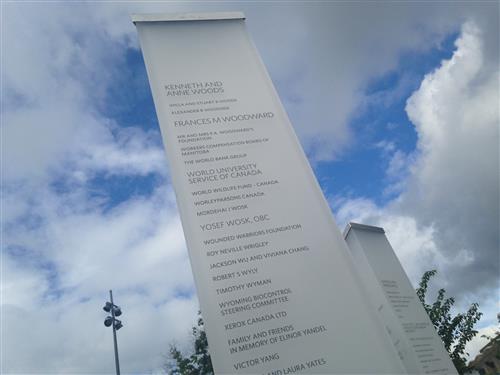
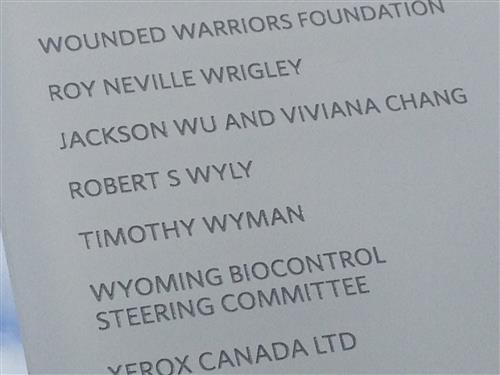
The Dr. Mohinder Singh Dhillon Bursary
A $2,400 bursary is made available in honour of Dr. Mohinder Singh Dhillon. Dr. Dhillon came to Canada in 1967, and while working and with his wife, Jasmer, raising three children into professional careers, Dr. Dhillon devoted his time, energy, knowledge, and talent to more than thirty community organizations, including service as an advisory board member for the Canadian Museum for Human Rights and for The University of Winnipeg’s Global College. In 2008, Dr. Dhillon received an Honorary Doctorate From the University of Winnipeg. The bursary is available to undergraduate students involved in the Punjabi Community and studying in the Faculty of Arts. Recommendation is made by Enrolment Services.
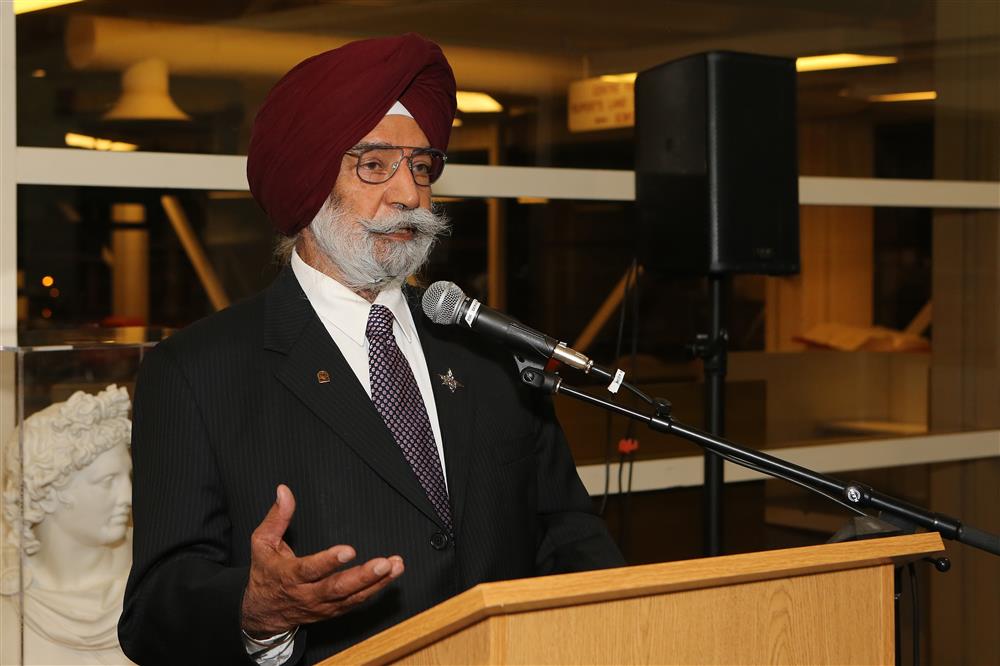
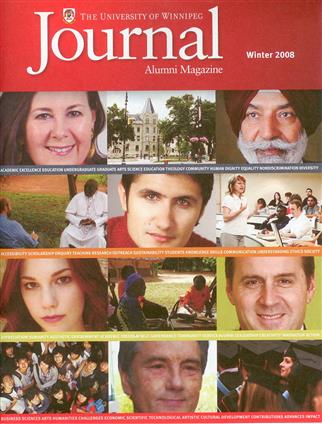
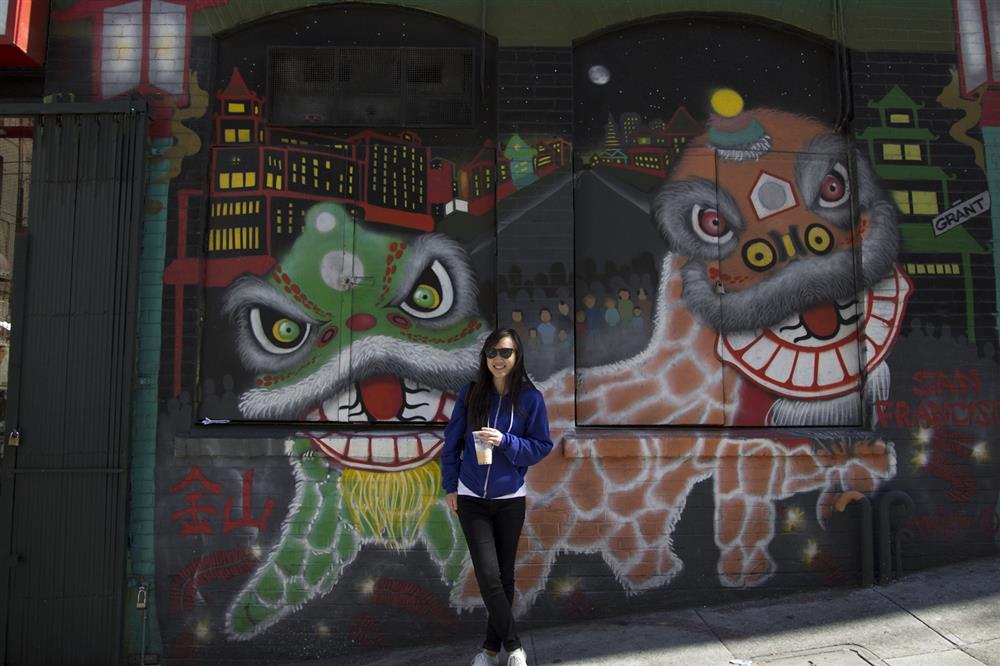
New for Fall, 2017!
The Brittany Jang Prize in Urban Futures
A prize of $500 is offered to a top first- or second-year student in Cities, Urst 200 / Geog 250. Brittany Jang took the Cities class a few years ago, and has gone on to a distinguished career shaping the cities and suburbs of the future. "With this prize," she writes, "my intent is to provide a potential spark for students early in their programs, when they are still considering their options. I hope this prize can excite a student, reward them for their work in urban studies, and perhaps get them to think about taking other Urban Studies courses, majoring in Urban Geography, or considering the Urban Studies Minor." As she works to shape the cities of the future, Brittany wants to inspire the cityzens of the future -- passionate and talented students like you!
The official Prize description as approved by UBC Senate is:
"A prize of $500 is awarded annually to the top academic student in lower-level required courses in the Urban Studies Program in the Faculty of Arts. Preference will be given to a top student from URST 200 or GEOG 250. The prizes are made on the recommendation of the Chair of the Urban Studies Coordinating Committee and the Department of Geography."
Winners of the Brittany Jang Prize in Urban Futures
- Yeon Soo Seo (Christine), "The Effects of GPS Technology on an Individual's Cognitive Map of Cities."
Robert S. Wyly (1920-2018)
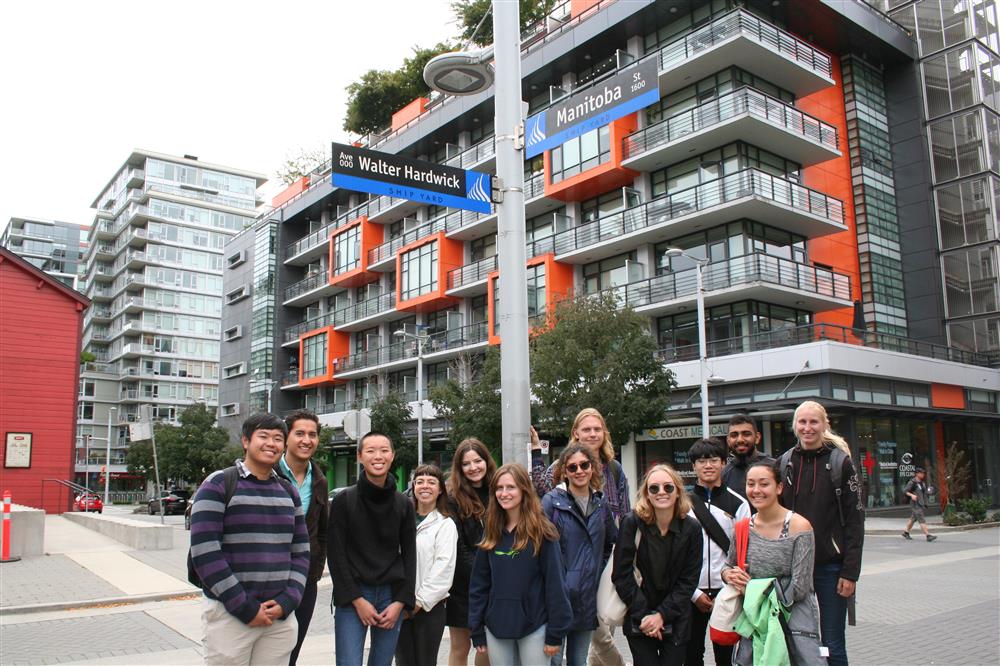
Vancouver Field Tour, 2018
Awards
